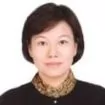- within Intellectual Property topic(s)
Under the practice of Taiwan's Intellectual Property (TIPO), when determining the similarity of trademarks, only characters in the same language contained in the trademarks under comparison will be considered. In other words, in the test of similarity, only the Chinese characters in a mark will be compared with Chinese characters in another mark, yet they will not be compared with an alphabetical word mark. The main reason is that as there are many ways to translate/transliterate an alphabetical word into Chinese, a Chinese translation/transliteration of an alphabetical word mark is not necessarily similar to the alphabetical word mark. Only when the Chinese translation/transliteration of an alphabetical word is prevalent in local market, would TIPO conclude that a senior alphabetical mark may preclude a junior Chinese translation/transliteration word mark from being registered.
Hereunder are some cases reviewed and concluded by TIPO in this regard.
- The Chinese characters
"福爾摩斯" (Chinese translation
of Sherlock Holmes) contained in the
 mark are similar to SHERLOCK HOLMES.
mark are similar to SHERLOCK HOLMES. -
"里昂哈佛" (Chinese translation
of Lyon Harvard) and "哈佛睡眠"
(Chinese translation of Harvard Sleep) contained in the mark
 are similar to HARVARD.
are similar to HARVARD. - "史丹佛菁英" (Chinese translation of Standford Elite) is similar to STANDFORD.
- "谷哥人"
(Chinese translation of Google people),
"谷歌" (Chinese translation of Google) and
the characters "谷哥嚴選"
(Chinese translation of Google Select) contained in
 mark are similar to GOOGLE.
mark are similar to GOOGLE. -
"迪斯奈快樂兒童寫真館"
(Chinese translation of Disney Happy Kids Photo Studio) contained
in the mark
 is similar to DISNEY.
is similar to DISNEY. - "行動臉書" (Chinese translation of Mobil Facebook) is similar to FACEBOOK.
- "藍寶堅尼" (Chinese translation of LAMBORGHINI) is similar to LAMBORGHINI.
- "帕瑪強尼" (Chinese translation of Parmigiani ) is similar to PARMIGIANI.
- "紅吉普"
(Chinese translation of Red Jeep) contained in
 mark and "
mark and " " (Chinese translation of Battlefield
Jeep) are similar to JEEP
" (Chinese translation of Battlefield
Jeep) are similar to JEEP - "創意雲工廠" (Chinese translation of Creative Cloud Factory) is similar to CREATIVE CLOUD
In Taiwan, it is not required by any authorities to use a trademark in Chinese characters in local market. While English is the first-studied foreign language and commonly used in Taiwan, a Chinese trademark is usually coined based on the original foreign language mark by a trademark owner and/or its local agent and distributor so as to enhance the marketing effect. If the corresponding Chinese translation of the foreign language mark is not registered in Taiwan and the link between the foreign language mark and the Chinese translation thereof is not commonly perceived by the local consumers, it will be an uphill battle for the foreign word trademark owner to oppose the corresponding Chinese translation mark registration obtained by a third party.
One of the most notorious cases is the trademark dispute between "Friesland"與 "菲仕蘭 (Fei-Shih-Lan)" marks. The trademark owner of "菲仕蘭" was the distributor of the trademark owner of "Friesland" in Taiwan and the "菲仕蘭" mark was coined by the distributor and marketed extensively the goods of "Friesland" for decades. After the end of the distribution business relationship between the two parties, the distributor continued marketing the goods branded "菲仕蘭" mark. Such activities misled the consumers into believing that the goods branded "菲仕蘭" mark were from the owner of "Friesland" mark. As the opposition against the "菲仕蘭" mark based upon the "Friesland" mark did not succeed, the "Friesland" mark and the "菲仕蘭" mark continued to co-exist in the market and the likelihood of confusion remained the same.
To avoid the market confusion, it is highly recommend that the foreign word trademark owner shall obtain a trademark registration for the corresponding Chinese translation/transliteration thereof concurrently so as to protect its trademark rights and business reputation thoroughly.
The content of this article is intended to provide a general guide to the subject matter. Specialist advice should be sought about your specific circumstances.

